When managing your Bitcoin IRA in the tax landscape, it is important to focus on tax benefits such as deferred growth and avoiding taxes until distribution. Remember to meticulously document gains and losses with IRS forms, differentiate between short-term and long-term gains, and take transaction fees into consideration. Keep detailed records of all transactions, including dates and fair market values. Make sure to adhere to IRS regulations for businesses, such as reporting payments and paying self-employment taxes. Understand the tax implications of Bitcoin transactions as property. Explore tax-efficient strategies like diversification and Dollar-Cost Averaging. Ensure compliance with international tax laws and reporting guidelines for cryptocurrencies. There are further insights that can enhance your approach to managing Bitcoin IRAs. Additionally, consider consulting a tax professional to stay current on evolving regulations, as the future of cryptocurrency and taxes may bring new opportunities or challenges. Staying informed about legislative updates and leveraging available resources can help maximize your Bitcoin IRA’s potential while ensuring compliance. Proactively incorporating these strategies will position you better to navigate the shifting financial landscape.
Key Takeaways
- Utilize tax-deferred growth and tax-free gains in Bitcoin IRA for potential savings.
- Maintain meticulous records and report gains accurately to comply with IRS regulations.
- Understand capital gains categorization, calculation, and implications for tax efficiency.
- Consider tax-efficient strategies like diversification and Dollar-Cost Averaging in Bitcoin IRA.
- Seek professional advice for international tax considerations and cross-border management.
Understanding Bitcoin IRA Taxation
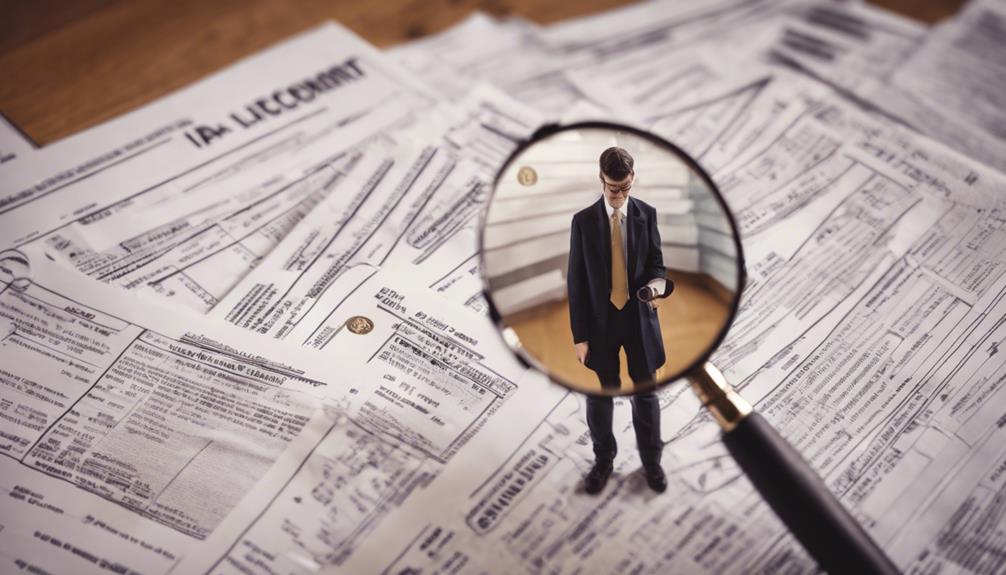
When managing your Bitcoin IRA, understanding the taxation implications is vital for maximizing your investment benefits. Investing in a Bitcoin IRA offers tax advantages through tax-deferred growth on your investments. This means that you won't have to pay taxes on your gains until you start withdrawing funds from your IRA, allowing your investment to grow unhindered by annual taxes.
Gains made within your Bitcoin IRA from crypto investments can grow tax-free until distribution, providing you with the potential for greater overall returns compared to a standard taxable account. By strategically managing your investments within the Bitcoin IRA, you can take advantage of potential gains without the immediate tax burden, enhancing your savings potential over time.
It's important to stay informed about the tax implications of your Bitcoin IRA to make informed decisions and optimize your investment strategy for long-term financial growth.
Reporting Cryptocurrency Gains Accurately
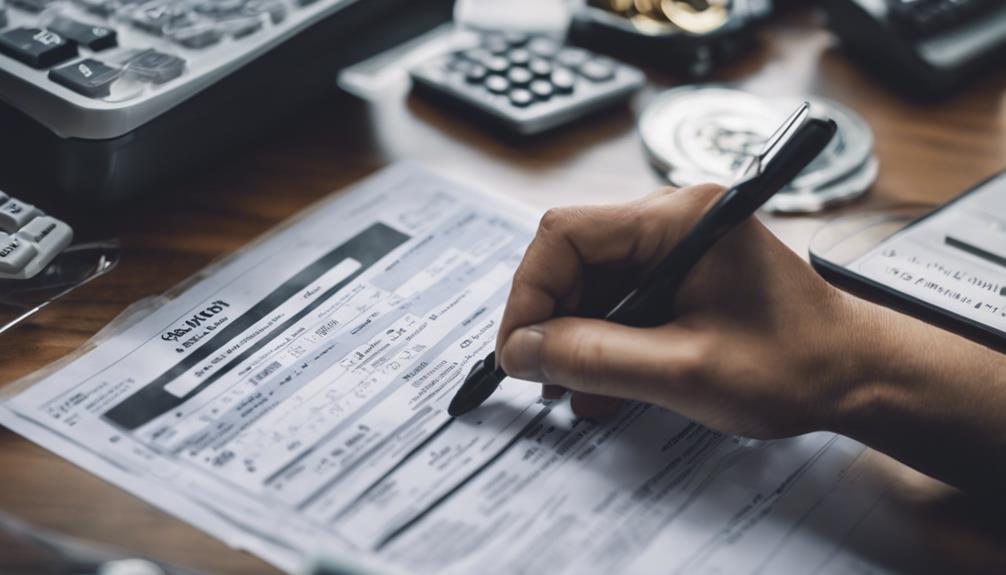
To accurately report cryptocurrency gains, make sure to thoroughly document Bitcoin transactions for tax compliance. When reporting crypto tax, confirm all details such as acquisition dates, sale dates, cost basis, and proceeds are included on IRS Form 8949 and Schedule D. Proper record-keeping is essential to avoid tax consequences, audits, and penalties related to cryptocurrency gains.
Individuals must accurately declare their Bitcoin income on their tax returns to meet IRS regulations. If you're unsure about how to handle your crypto tax reporting, consider consulting a tax professional. They can provide guidance on accurately reporting your cryptocurrency gains and ensuring compliance with tax laws.
Categorizing Capital Gains for Compliance
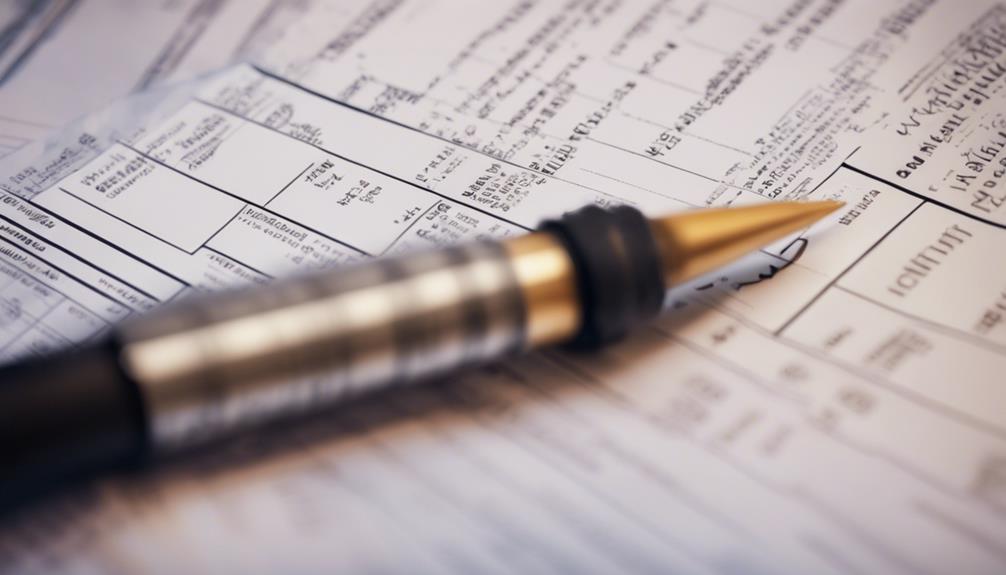
When categorizing capital gains from your Bitcoin IRA investments, it's important to differentiate between short-term and long-term gains for tax purposes.
Short-term gains are taxed at regular income rates, while long-term gains might be subject to lower capital gains taxes.
Remember to factor in transaction fees and acquisition costs when determining your cost basis for accurate capital gains reporting.
Capital Gains Calculation
Properly categorizing your capital gains is essential for ensuring compliance with tax regulations when managing your Bitcoin IRA.
When calculating capital gains, remember that short-term gains are taxed at ordinary rates, while long-term gains might qualify for lower capital gains tax rates.
To accurately report your gains or losses, subtract the cost basis from the proceeds, factoring in fees and acquisition costs for precise calculations.
Understanding the importance of accurate record-keeping for dates, quantities, parties involved, and fair market value is vital in capital gains calculation.
Reporting Requirements Compliance
Categorizing your capital gains correctly based on holding duration is essential for ensuring compliance with IRS regulations when managing your Bitcoin IRA. To maintain reporting requirements compliance, follow these steps:
- Document Transactions: Keep detailed records of acquisition dates, sale dates, cost basis, and proceeds for all Bitcoin IRA transactions.
- Differentiate Capital Gains: Differentiate between short-term and long-term capital gains, as they're taxed at different rates.
- Complete Forms Accurately: Properly fill out Form 8949 and Schedule D, ensuring accurate reporting of capital gains to the IRS.
Accurate record-keeping and understanding the tax implications of your transactions are crucial to avoid audits or penalties and stay in line with IRS regulations for your Bitcoin IRA.
Maintaining Detailed Bitcoin Activity Records
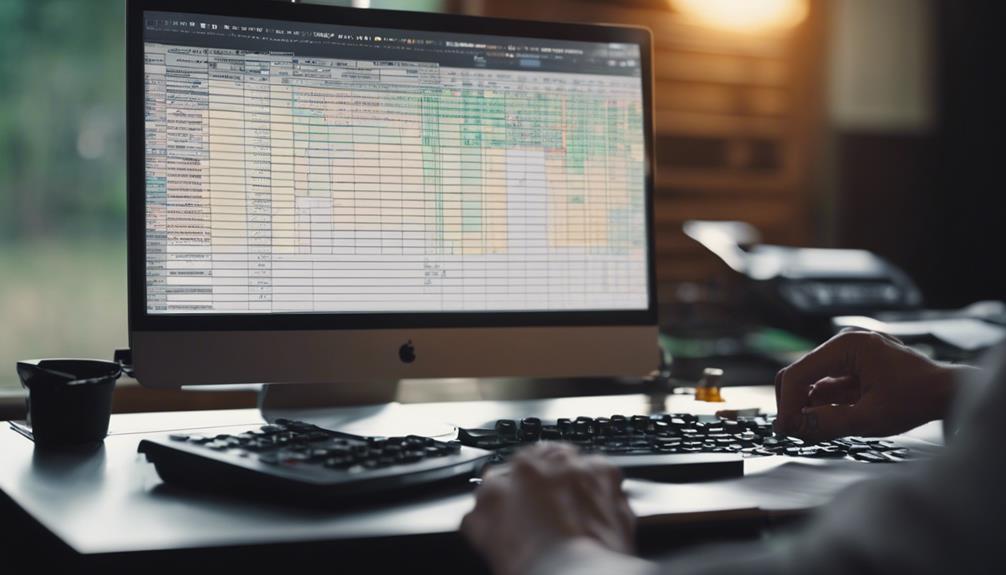
When managing your Bitcoin IRA, keeping detailed records of your Bitcoin activity is essential. You should include dates, quantities, parties involved, and fair market values in these records.
Record-Keeping Best Practices
Maintain detailed records of all Bitcoin IRA transactions to accurately track account activity and guarantee compliance with tax reporting requirements.
To safeguard proper record-keeping, consider the following best practices:
- Document all Bitcoin IRA contributions, withdrawals, and transfers to track account activity effectively.
- Keep thorough records of Bitcoin purchases, sales, and trades within the IRA for accurate reporting of capital gains.
- Record dates, quantities, counterparties, and fair market values of Bitcoin transactions to facilitate precise tax calculations.
Importance of Documentation
Proper documentation of your Bitcoin IRA activity is essential for ensuring accurate reporting and compliance with tax regulations. Keeping detailed records of crypto transactions, including purchase dates, amounts, prices, and transaction specifics, is important for determining taxable income.
By documenting contributions, withdrawals, transfers, and trades, you can calculate gains, losses, and the overall performance of your Bitcoin IRA. Additionally, maintaining records of fees, taxes, and other related expenses is crucial for financial analysis purposes.
Having accurate documentation not only provides transparency and accountability but also ensures compliance with IRS regulations for Bitcoin IRAs. Consider consulting tax professionals to help you navigate the complexities of reporting your Bitcoin IRA activity accurately.
Adhering to IRS Regulations for Businesses

To guarantee compliance with IRS regulations, businesses engaging in Bitcoin transactions must report cryptocurrency payments accurately. This helps ensure adherence to tax laws and avoid potential penalties. Here are some key points to keep in mind:
- Form 1099 Reporting:
- Businesses accepting Bitcoin must report cryptocurrency payments to contractors using Form 1099.
- This is important for accurately reflecting income and ensuring proper tax filings.
- Self-Employment Taxes:
- Self-employed miners are required to pay self-employment taxes on their Bitcoin income.
- Understanding and fulfilling these tax obligations is necessary to remain in good standing with the IRS.
- Form W-2 Disclosure:
- Employers need to disclose Bitcoin payments made to employees on Form W-2.
- Properly documenting these transactions is vital for both the employer and employee when filing taxes.
Tax Implications of Bitcoin Transactions

Understanding the tax implications of Bitcoin transactions is essential for accurately reporting gains or losses to the IRS. Bitcoin and other cryptocurrencies are classified as property for taxation purposes. Any gains or losses resulting from Bitcoin transactions must be diligently recorded for proper tax reporting.
Swapping Bitcoin for other assets can trigger taxable events, each with specific implications that need to be accounted for. Additionally, miners are obligated to report Bitcoin rewards as taxable income. When Bitcoin is received as income, it's taxed based on its fair market value at the time of receipt.
These aspects highlight the potential tax complexities involved in dealing with Bitcoin transactions. Staying informed and ensuring meticulous record-keeping are vital to effectively managing the income tax implications associated with Bitcoin and other cryptocurrencies.
Strategies for Tax Planning With Bitcoin IRA

When considering tax planning with your Bitcoin IRA, focus on tax-efficient investment strategies that can optimize your returns.
Guarantee you're reporting cryptocurrency gains accurately to stay compliant with tax regulations.
Tax-Efficient Investment Strategies
Maximize your investment returns and minimize immediate tax implications by utilizing tax-deferred growth in your Bitcoin IRA. To guarantee tax-efficient strategies, consider the following:
- Diversify Your Portfolio: Spread your investments across different cryptocurrencies within your Bitcoin IRA to mitigate risks and enhance potential returns.
- Utilize Contribution Benefits: Take advantage of potential tax deductions by contributing to your Bitcoin IRA, allowing for long-term growth while reducing taxable income.
- Implement Dollar-Cost Averaging: Regularly investing a fixed amount in your Bitcoin IRA can help smooth out market volatility and optimize performance over time.
Reporting Cryptocurrency Gains
To optimize tax planning with your Bitcoin IRA, consider strategizing to minimize capital gains tax liabilities. When reporting cryptocurrency gains, it's important to accurately document transactions to calculate capital gains or losses.
By harvesting losses within your Bitcoin IRA, you can offset gains and potentially lower your tax obligations. Regularly reviewing your portfolio for strategic tax planning opportunities is key. Leveraging financial planning software can help optimize your tax situation within your Bitcoin IRA.
Additionally, staying informed on reporting requirements is important. Consulting with a tax professional for personalized advice on your Bitcoin IRA can provide valuable insights tailored to your specific circumstances. By being proactive and informed, you can navigate the tax landscape effectively with your Bitcoin IRA.
International Tax Considerations for Bitcoin

Understanding the international tax implications of holding Bitcoin is essential for ensuring compliance with various jurisdictions' tax laws. When dealing with Bitcoin on an international scale, you must consider the following:
- Tax Residency Impact: Your tax residency status can have a substantial effect on your tax obligations related to Bitcoin in different countries.
- Double Taxation Agreements: These agreements are important in preventing dual taxation on the same income in multiple jurisdictions, providing relief and clarity for taxpayers.
- Compliance with International Tax Laws: Determining your tax residency correctly and abiding by international tax laws is crucial to avoid penalties or legal issues when dealing with Bitcoin investments.
To navigate the complexities of international tax considerations for Bitcoin effectively, seeking specialized advice and adhering to OECD guidelines can provide valuable insights into managing your tax obligations across borders.
Compliance With Cryptocurrency Tax Guidelines
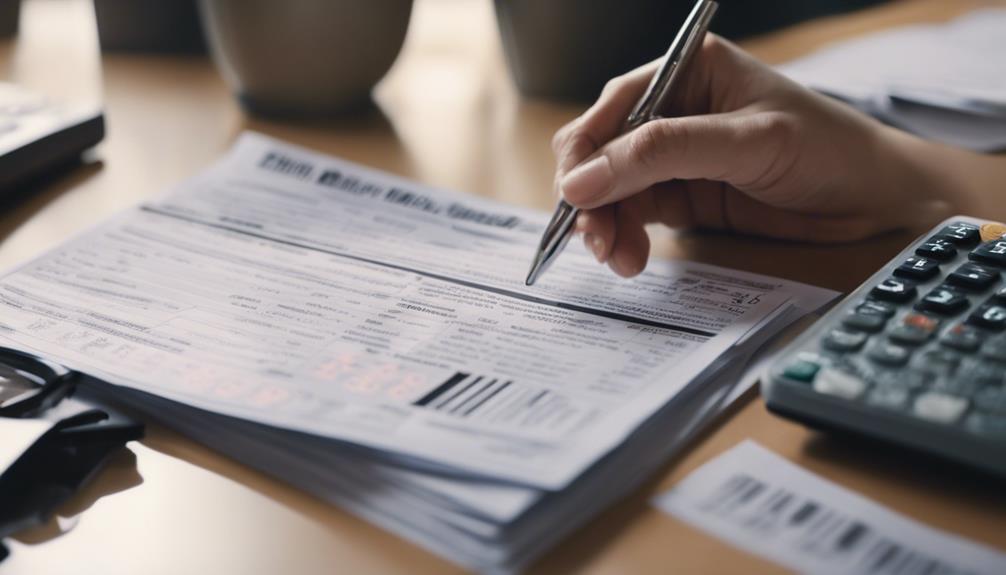
Ensuring compliance with cryptocurrency tax guidelines is vital for managing your Bitcoin IRA effectively. Bitcoin IRAs are subject to capital gains tax laws set forth by the IRS. Properly reporting gains, losses, and transactions is essential for staying in line with these regulations. To navigate the tax landscape successfully, it's imperative to keep accurate records of all your Bitcoin IRA activities. By maintaining detailed records, you not only guarantee tax compliance but also prepare yourself for any potential audits that may arise.
Bitcoin IRA providers also have a responsibility to adhere to cryptocurrency tax guidelines to protect their clients and maintain legal compliance. Understanding the tax implications of Bitcoin IRAs is key to effective financial planning and ensuring that you aren't caught off guard by unexpected tax liabilities. By staying informed and following the necessary guidelines, you can navigate the complex world of cryptocurrency taxation with confidence and peace of mind.
Avoiding Penalties Through Proper Reporting
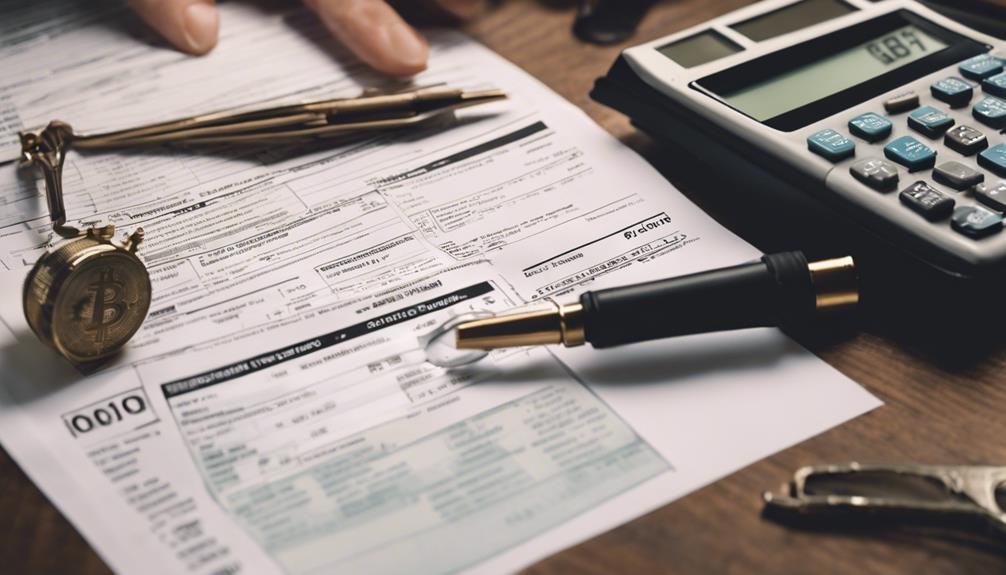
Properly reporting your Bitcoin IRA transactions is essential for avoiding IRS penalties and audit risks. To guarantee compliance and minimize the chances of penalties, consider the following:
- Maintain Accurate Records: Detailed record-keeping of your cryptocurrency transactions is vital for tax purposes. Keep track of all buying, selling, and trading activities related to your Bitcoin IRA.
- Utilize Form 1099: When making contractor payments within your Bitcoin IRA, make sure to use Form 1099 to report these transactions accurately. This form helps in documenting income paid to contractors and is crucial for tax compliance.
- Disclose Payments on Form W-2: Employers must disclose Bitcoin payments made to employees on Form W-2 for tax purposes. This reporting ensures that the income from Bitcoin payments is properly documented and reported to the IRS.
Proper reporting and adherence to tax regulations can help you navigate the tax landscape smoothly and avoid potential penalties.
Frequently Asked Questions
Do You Pay Taxes on Bitcoin Ira?
Understanding the tax implications of your Bitcoin IRA is crucial for effective financial planning. Taxes on Bitcoin IRAs are deferred until funds are withdrawn in retirement, at which point withdrawals are subject to income tax rates.
Contributions may be tax-deductible, and capital gains are taxed upon distribution. Proper tax planning can optimize both retirement savings and tax benefits.
Is It a Good Idea to Have a Bitcoin Ira?
Having a Bitcoin IRA can be a smart move for long-term financial planning. It offers tax advantages and the potential to diversify your portfolio, reducing risks in traditional markets.
By taking control of your retirement savings trajectory with a Bitcoin IRA, you may amplify your investments' performance and resilience against market volatility.
Consider consulting a reputable provider like BTC IRA to navigate the complexities and advantages of a Bitcoin IRA for your financial goals.
How Do I Cash Out Bitcoins and Avoid Taxes?
When cashing out Bitcoins to avoid taxes, consider holding them for over a year to potentially qualify for lower long-term capital gains rates.
Utilize tax-deferred accounts like a Bitcoin IRA to delay taxes on gains until withdrawals.
Explore gifting or donating options to reduce tax liabilities and possibly benefit from charitable deductions.
Consult a tax professional for strategies tailored to your situation, ensuring you navigate the tax landscape effectively.
Can I Hold Bitcoin in My Ira?
Yes, you can hold Bitcoin in your IRA. Bitcoin IRAs offer the opportunity to invest in cryptocurrencies like Bitcoin within a tax-advantaged retirement account.
By diversifying your IRA with Bitcoin, you can potentially hedge against market risks and boost long-term returns.
It's important to choose a reputable Bitcoin IRA provider for securely holding Bitcoin in your retirement portfolio.
Conclusion
To sum up, understanding the tax landscape of your Bitcoin IRA requires careful planning and adherence to IRS regulations. Just as a seasoned explorer charts a course through uncharted waters, you must meticulously report your cryptocurrency gains and maintain detailed records to avoid penalties.
By categorizing capital gains correctly and strategizing for tax planning, you can successfully manage the complexities of Bitcoin IRA taxation. Stay vigilant, stay compliant, and your financial journey will remain smooth sailing.









